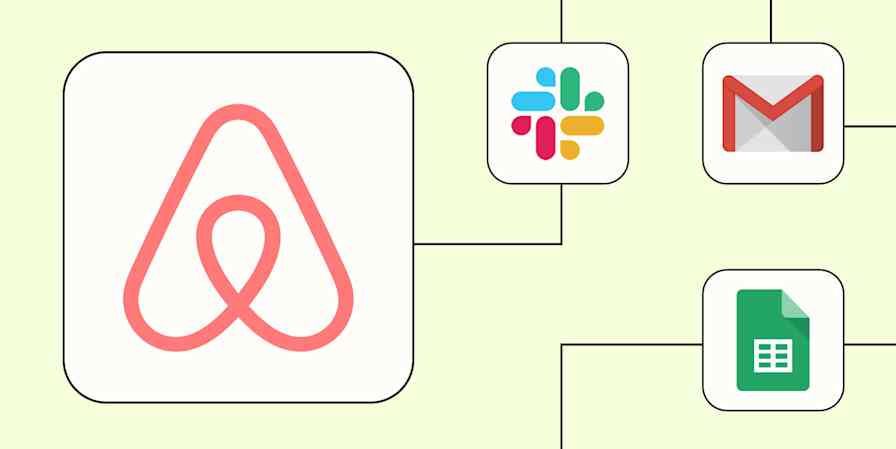A CRM is your prized possession in real estate. You need something to keep things straight when juggling client management, property listings, and the looming threat of being upstaged by that insufferably smug agent from the office across the street.
But with countless options on the market, how do you know which software is right for you?
I looked into dozens of options, read approximately a million reviews, watched demos narrated by people way too cheerful for 9 a.m., and gathered insights from real estate professionals who actually use these things every day to find the ultimate CRM for real estate agents.
After all that research, I've whittled down the list so you don't have to. Here's everything you need to know about the best real estate CRMs on the market.
The 9 best CRMs for real estate
Follow Up Boss for brokerages
Sierra Interactive for an all-in-one option
IXACT Contact for new agents
CINC for lead generation
Lofty for automation
Top Producer for lead nurturing
Real Geeks for small teams
Wise Agent for realtors on a budget
BoomTown for growth-minded teams
What key features make the best CRM software for real estate agents?
A customer relationship management (CRM) platform for real estate is there to make your life easier, streamline client communication and lead management, and give you that edge you've been looking for.
Here are some key features I found most valuable in the top contenders.
Lead generation: A good real estate CRM offers tools to help you generate and capture leads effectively, with features like customizable lead capture forms, website integration, and the ability to import leads from various sources. The software should also allow you to track the source of each lead, so you can focus your efforts on productive channels.
Workflow management: Real estate involves numerous tasks and deadlines, and a CRM that can streamline your workflow is essential. It should allow you to create custom pipelines, set reminders, and schedule appointments.
Integration, automation, and AI: Realtors wear a lot of hats—marketer, negotiator, therapist (seriously, have you met some buyers?). Your CRM should seamlessly integrate with the tools you already use, such as your email, calendar, social media, and direct MLS/IDX feeds for up-to-date listing data. Real estate automation can save you significant time by handling routine tasks like follow-up emails and appointment scheduling. Additionally, AI can offer insights into customer behavior, predict sales trends, and even recommend the next best action for agents.
Mobility and accessibility: As a real estate agent, you're often on the move, which is why the CRMs below have a capable mobile website or a dedicated app. A mobile-friendly, cloud-based CRM that agents can access from anywhere, at any time, is clutch. Whether it's updating client details, scheduling viewings, or accessing documents and contracts on the fly, accessibility ensures agents can be productive no matter where they are.
Ease of use: The best real estate CRMs are easy to set up and use, and offer ways to access help content when you need it.
Industry focus: A CRM designed with real estate in mind will include features specifically beneficial for agents, such as property tracking, commission calculations, and integration with real estate databases. With 2024's NAR settlement potentially transforming commission structures and market dynamics, it's more crucial than ever for agents to have tailored solutions. Real estate-specific software means agents aren't just managing contacts—they're also getting insights and tools specific to their market, helping them stay ahead of the competition. But if that's not important to you, you have a lot of generic CRM options to choose from.
When shopping for a CRM, you should weigh these criteria against your personal and business needs. The right CRM software should fit your current workflow and scale with your ambitions, ultimately leading to a more organized, efficient, and successful real estate empire.
The best CRM for real estate at a glance
| Best for | Standout feature | Pricing |
|---|---|---|---|
Brokerages | Seamless integration with over 250 apps (plus Zapier) | From $69/user/month | |
All-in-one solution | Powerful lead management and nurturing tools | From $524.95/month for 5 users | |
New agents | 6-month free trial for new agents | From $55/user/month | |
Lead generation | Excellent lead organization and team management features | By request | |
Automation | Automated follow-up sequences based on triggers | By request | |
Lead nurturing | Direct MLS integration | From $179/user/month | |
Small teams | Easy-to-build, SEO-optimized websites | From $599/month for 2 users | |
Realtors on a budget | Comprehensive toolset at an affordable price | From $49/month for up to 5 users | |
Growth-minded teams | Built-in lead generation services | By request |
Best real estate CRM for brokerages
Follow Up Boss (Web, iOS, Android)

Follow Up Boss pros:
250+ integrations
Robust calling features
Automatically syncs with Zillow leads
Follow Up Boss cons:
Time-consuming onboarding process
Limited text automation
Follow Up Boss (FUB) stands out as a real estate CRM, not by being a jack-of-all-trades but by mastering the art of functionality and user experience. It doesn't try to be everything—like offering websites and lead gen. Instead, it excels with seamless integration with over 250 apps and a mobile app that's like having a command center in your pocket, ensuring you're never out of touch with your leads, even when you're on the move.
Calling is a breeze thanks to easy number changing, local number setting, call recording, and access to call analytics. Beyond calls, FUB is a powerhouse for managing leads and emails, allowing you to track conversations, create drip campaigns, and use templates to communicate more efficiently.
While the absence of a built-in website might seem like a miss, it's actually by design, allowing FUB to play nice with any website setup you choose. This laser focus is what makes FUB a beloved tool among agents, earning high marks for its intuitive design and comprehensive integrations. With a wealth of training materials to get teams up to speed, FUB is a no-brainer for real estate professionals looking to amp up their lead engagement game.
You can do even more with Follow Up Boss when you integrate it with Zapier, so you can automatically add leads to your CRM or send information to the other apps you use most. Learn more about how to automate Follow Up Boss, or get started with one of these pre-built workflows.
Create contacts in Follow Up Boss when new lead are added to Curb Hero
Create or update contacts in Follow Up Boss from new Jotform submissions
Follow Up Boss pricing: From $69/user/month for the Grow plan; add additional users for $39/user
Best all-in-one real estate CRM
Sierra Interactive (Web, iOS, Android)

Sierra Interactive pros:
Powerful lead management and nurturing tools
Excellent training and support
Well-designed websites with strong conversion rates
Sierra Interactive cons:
Pricier than other platforms
May be intimidating for less tech-savvy users
Sierra Interactive is like that overachieving kid in high school who took all AP classes, aced every test, dominated extracurriculars, and still somehow found time to be prom king. Just a totally obnoxious level of excellence.
Sierra Interactive embraces a "more is more" philosophy, providing extensive features like an auto-dialer for efficient lead outreach, custom workflows, and both fully automated and traditional drip campaigns (or "action plans," as Sierra calls them). User feedback highlights the quality of the platform's IDX websites, noting their speed, search functionality, and superior Google Ad conversion rates.
One of Sierra Interactive's standout elements is its exceptional training and support. Agents frequently report positive experiences with helpful account managers and a streamlined onboarding process. But due to its technical nature, Sierra Interactive has a steeper learning curve, potentially making it less suitable for those uncomfortable with technology.
While Sierra Interactive comes with a higher price tag than most, its suite of features makes it well-suited for those seeking a comprehensive all-in-one solution. Overall, it's a strong choice for tech-comfortable real estate professionals who want extensive features, impressive conversion rates, and top-notch support.
By connecting Sierra Interactive with Zapier, you unlock the ability to automate your workflow, such as automating appointment reminders or seamlessly updating information across your tech stack. Here are a few examples to get you started.
Update Sierra Interactive leads from new Fello Connect leads
Sierra Interactive pricing: From $524.95/month for the Core Package, which includes 5 users, plus a one-time $500 implementation fee; add an additional 5 users for $100/month
Best real estate CRM for new agents
IXACT Contact (Web, iOS, Android)

IXACT Contact pros:
Six-month free trial for new agents
Direct mail marketing
User-friendly interface
IXACT Contact cons:
Clunky third-party app integration
A la carte pricing can quickly add up
IXACT Contact is a one-stop shop for real estate agents who can't be bothered to juggle a dozen different tools just to sell a house. For newbies, it wants to be your ride-or-die wingman as you get your feet wet, like the Scottie Pippen of real estate software.
One of IXACT Contact's major selling points is its focus on new agents. Through its Rookie Agent Program, IXACT Contact offers first-year real estate agents six months of service for free. For everyone else, they provide a generous five-week free trial to kick the tires.
The Social Stream add-on brings a valuable layer to IXACT Contact. It allows you to select articles and videos to share across your social networks, automating content posting to save time. Though it's more of a curator than a creator, its quality content from reliable sources keeps your feeds lively and engaging.
There are a few limitations to consider. IXACT Contact doesn't offer audience segmentation for targeted marketing. And the website builder is about as basic as a pumpkin spice latte. But all in all, IXACT Contact is a compelling choice if you're looking for a CRM with potential IDX website integration and social media tools—or if you're a fresh-faced agent looking for a deal.
Integrating IXACT Contact with Zapier allows for seamless automation of contact management and email marketing campaigns, making it easier to keep in touch with clients and prospects without manual input. Check out these workflows to get you started.
Create new IXACT contacts from new Mailchimp subscribers
IXACT Contact pricing: From $55/month
Best real estate CRM for lead generation
CINC (Web, iOS, Android)

CINC pros:
Excellent lead organization and team management features
Granular permission assignments for agents
Top-notch customer support
CINC cons:
More expensive than most other options
Steep learning curve
CINC is like that fancy restaurant that doesn't list prices on its menu. Sure, it might serve you the best duck à l'orange of your life, but you'll have to take out a second mortgage to afford it.
CINC doesn't list its pricing publicly, but word on the street is users should expect to pay at least $1,000 per month. Their packages bundle Google Ads into the monthly cost, which can be a neat perk or a point to ponder, depending on how hands-on you like to be with your PPC campaigns. For those who value ease and simplicity, this setup could be a convenient solution. However, if you're the type to tweak and tailor every aspect of your campaigns, you might find the setup a bit restrictive. It's all about what works best for your workflow and how much you want to be involved in the process.
CINC's strengths lie in its many features. It offers robust lead organization, communication tools, customizable follow-up plans, and landing pages. But be aware that a deep feature set makes CINC's interface complex and not very intuitive, often requiring users to purchase additional classes to fully understand and maximize the platform.
Overall, CINC is a solid contender suited for those willing to invest heavily in a turnkey solution without the need for total control. But if you like to get under the hood of your Google Ads account or just don't fancy paying through the nose for the privilege of being handcuffed to a platform, you might want to keep looking.
With CINC's integration into Zapier, you can streamline lead generation and nurturing processes by connecting their CRM to your favorite apps. Try one of the pre-made workflows below.
CINC pricing: By request
Best real estate CRM for automation
Lofty (Web, iOS, Android)

Lofty pros:
Easily customizable modern websites
Extensive automation capabilities
Robust team management features
Lofty cons:
Limited reporting features
Call and text features can lead to variable bills
Lofty (formerly known as Chime) is a popular all-in-one CRM designed for real estate agents and teams. It offers a suite of tools for lead generation, nurturing, valuation, and transactions.
Lofty packs a punch with its comprehensive CRM automation. It provides extensive options for creating automated workflows, email and text campaigns, social media posting, and follow-up sequences based on triggers like lead activity, stages, and timeframes. The sales pipeline tool also helps visualize and advance contacts through a defined process. And its AI Workforce brings hands-free support to everything from content creation to lead qualification, giving agents more time to close deals and less time wrestling with busywork.
However, some significant drawbacks should be considered. Lofty's pay-as-you-go structure for calls and texts can lead to unpredictable bills, potentially hindering some agents from fully utilizing these features. Additionally, because Lofty outsources its tech support, you might occasionally experience slow support response times.
If you prioritize a wide range of capabilities for automating and managing real estate workflows, especially for nurturing leads, Lofty is a compelling option. Just be prepared for unpredictable bills and possible support delays.
Zapier's connection with Lofty transforms your real estate operations by automating task assignments and follow-ups, ensuring your team stays on top of every deal and client relationship with minimal effort. Check out these popular examples.
Add or update contacts in Fello Connect for new leads in Chime
Add or update Mailchimp subscribers for new Chime leads
Create new leads in Lofty from new leads in Curb Hero
Lofty pricing: By request
Best real estate CRM for lead nurturing
Top Producer (Web)

Top Producer pros:
AI-powered Smart Targeting feature
Detailed reporting capabilities
Modern, intuitive dashboard
Top Producer cons:
Website not included in base plan
12-month contract required
Top Producer is a long-standing and well-respected realtor CRM. As one of the pioneering CRM solutions in the industry, it has continuously evolved to keep pace with the changing needs of agents and brokerages.
One of Top Producer's key strengths is its deep integration with MLS. Unlike many CRMs that rely on more limited IDX data feeds, Top Producer connects directly to the MLS, providing users access to a much richer set of property data—up to 300 data points per listing compared to the typical 20. This means agents can impress clients with the kind of comprehensive insights that make Nostradamus look vague.
Social Connect is another neat feature: it allows Top Producer's advertising experts to handle your Facebook and Instagram ad campaigns, promote your listings, and generate leads that flow straight into your CRM.
It's important to note that Top Producer falls on the pricier side of real estate CRMs. The platform requires a one-year commitment up front, and additional tools like lead management and a website carry separate monthly fees. This may make it a less accessible option for individual agents or teams on a shoestring budget.
At the end of the day, if you're ready to invest in a premium CRM that emphasizes lead generation and automated nurturing, Top Producer is worth considering. Just make sure your wallet can handle it before you commit.
Connect Top Producer with Zapier to enhance lead routing, manage tasks across platforms, and boost your overall operational efficiency. Here are some workflows to get you started.
Create Top Producer contacts from new Realty.com leads
Create contacts in Top Producer for new or updated subscribers in Mailchimp
Create contacts in Top Producer from new leads or lead activity in Luxury Presence
Top Producer pricing: From $179/user/month for the Pro plan
Best real estate CRM for small teams
Real Geeks (Web, iOS, Android)

Real Geeks pros:
Easy-to-build, SEO-optimized websites
Prompt and helpful customer support
Variety of community-sourced drip campaign templates for email and text
Real Geeks cons:
Doesn't offer a free trial—just a demo
Lack of customization with websites
Real Geeks markets itself as the one-stop shop for real estate agents—and it's not wrong. This platform offers a capable CRM, an IDX-integrated website, and an array of lead generation tools, all wrapped up in a low-cost subscription.
Real Geeks checks the boxes on critical functions like automated drip campaigns, customizable workflows, SMS autoresponders, and video integration. And its AI assistant and Facebook ad services can help nurture leads when you're too busy to do it yourself.
Users say the website builder's interface is dated but easy to use. The end results, while not the prettiest, are lightning-fast and have high conversion rates, making Real Geeks highly effective for lead generation.
The jack-of-all-trades approach does come with a trade-off: Real Geeks lacks the robust functionality and scalability of enterprise-level CRMs. For instance, the platform still relies on manual integrations for high-volume dialing and contact management. This is probably a dealbreaker for agents who heavily rely on outbound marketing.
Still, for small agencies looking for a reasonably priced, out-of-the-box solution, Real Geeks is hard to beat. And by connecting Real Geeks with Zapier, you can streamline tasks across your business tools by effortlessly adding leads, triggering personalized communications, and more. Try one of the templates below.
Create contacts in Constant Contact for new leads in Real Geeks
Real Geeks pricing: From $599/month for the Establish plan on a six-month term, which includes two users, plus a one-time sign-up fee
Best real estate CRM for realtors on a budget
Wise Agent (Web)

Wise Agent pros:
24/7 support and one-on-one onboarding included
Large content library and templates
Google Chrome extension easily pulls contacts from emails
Wise Agent cons:
Few advanced features
Basic reporting capabilities
If you're a solo agent or running a bare-bones real estate team but still want a full-featured CRM that doesn't nickel-and-dime you to death, Wise Agent is a wise choice indeed.
For a modest monthly fee, it offers a bit of everything: contact and deal management, transaction management checklists, email drip campaigns, a landing page builder, SMS messaging, a library of stock real estate content, a power dialer for batch calling, and an AI assistant to help write emails or marketing campaigns.
Wise Agent goes hard on support. They provide 24/7 customer service and complimentary one-on-one onboarding for new users, which is rare at its price point. So even if you barely know what a CRM is, a real human will spoon-feed you through it. Nicely. Without judgment.
One thing Wise Agent won't do is hand you leads on a silver platter. It's more DIY lead gen—create a landing page and capture leads from your website (or toss some money at Facebook ads). But it will scoop up leads from all over the place via email parsing, and honestly, once they're in, you've got enough tools to nurture the heck out of them until they're handing over earnest money.
For that palatable price point, there are, shall we say, compromises. The interface, while straightforward, can feel a bit dated and cluttered. And for data nerds, the reports and analytics leave much to be desired. You also won't find the same level of customization as pricier, enterprise-level options.
Wise Agent integrates with over 100 common tools like Google Workspace, Outlook, Mailchimp, and Docusign. You can also connect Wise Agent to the other apps you use through Zapier. Easily add new contacts, trigger tailored marketing campaigns, or effortlessly manage your lead pipeline. Try one of the templates below.
Create Wise Agent CRM leads from new or updated Google Contacts
Add lead in Wise Agent when a new guest signs in to the Curb Hero Open House app
Create leads in Wise Agent from new leads in Showcase IDX
Wise Agent pricing: From $49/month for up to 5 users
Best real estate CRM for growth-minded teams
BoomTown (Web, iOS, Android)

BoomTown pros:
High-quality IDX website
Advanced marketing tools for lead nurture
Predictive analytics
BoomTown cons:
Very expensive starting cost
Fewer native integrations than competitors
BoomTown isn't out here pretending to be affordable. It knows it's a premium platform, offering a powerful, all-in-one lead generation and conversion machine.
Sleek and SEO-optimized, BoomTown's IDX-integrated agent websites let visitors search MLS listings until they either find their dream house or give up and become your next lead. You get their info, they get to Zillow-stalk in peace. Everyone wins.
For even more leads, pair that with BoomTown's digital advertising services. The in-house Google and Facebook ad management team will gladly spend more of your cash in the name of traffic. All those leads flow into the built-in CRM, which is designed to qualify, nurture, and convert at a high level.
The CRM side includes features like Smart-Drip plans (customize drip campaigns that adjust based on lead behavior), automated lead qualification, and task management to keep agents on track. Collaboration tools let team leaders track agent performance. For big teams, BoomTown also supports lead routing, agent accountability dashboards, and coaching tools. For team leaders, BoomTown delivers enough micromanagement tech to satisfy even the most control-freaky broker: lead routing, agent performance dashboards, and coaching tools.
However, cost is a major barrier. According to user reports, the entry-level package runs around $1,000/month for two users (plus a hefty setup fee). And with so many features, some agents may feel overwhelmed or not utilize everything they're paying for (though BoomTown does provide support and training).
BoomTown itself has acknowledged that it's best suited for teams looking to scale up significantly since it can reliably produce a pipeline of leads and provides the tools to work them. So, if your team is huge and you have the budget, it might be a worthy investment.
BoomTown can be easily integrated with your favorite apps through Zapier, making lead generation and nurturing processes even more efficient. Try one of the pre-made workflows below.
BoomTown pricing: By request only
General CRMs you can use for real estate
Need more options or want to see how real estate CRMs compare to all-purpose solutions? Expand your search with these helpful roundups covering a variety of general-purpose CRMs.
Which real estate CRM is right for you?
There's not going to be one perfect solution that suits everyone here. Instead, you need to identify your most important business needs—be it lead management, the ability to automate your workflows, robust analytics, or something else entirely—to help you narrow down which app makes the most sense for you.
For example, if you're new to the industry and affordability is your top concern, IXACT Contact's six-month free trial for new agents might appeal to you. Or, if you have a deep tech stack that you want to connect with your real estate CRM, you might consider Follow Up Boss.
If you're still debating between a few apps, you can also reach out to their sales teams. They'll walk you through the specifics of their app and address any points I may not have covered in depth here.
Real estate CRM FAQ
Here are answers to some of the most commonly asked questions about real estate CRM software.
Why do real estate agents need a CRM?
CRM software helps real estate agents and brokers streamline all their administrative workflows—from managing lead data to keeping track of property listings and everything in between.
You could opt to do all of your tasks in separate apps—for example, you could create lead capture forms using an online form builder and then store all that information in a separate database. But a good real estate CRM allows you to accomplish all of these tasks from one central place.
How much does real estate CRM cost?
The cost for real estate CRMs vary depending on the app. For example, this roundup includes tools that cost anywhere from $49/month for 5 users to $599/month for 2 users. Some others don't list prices on their websites—they're available only upon request.
What features should I look for in a commercial real estate CRM?
If you're in commercial real estate, your CRM needs are a bit different from the average residential agent. You're dealing with longer sales cycles, complex property data, and often a whole slew of characters on the decision-making side, like investors, property managers, and legal teams. Here's what to look for in a CRM for commercial real estate:
Multi-contact deal tracking: Unlike residential deals that typically involve one buyer and one seller, commercial transactions can involve multiple stakeholders. Your CRM should let you link several contacts to a single opportunity and keep track of everyone's role.
Property and lease tracking: Unlike residential real estate, commercial real estate often involves managing leases, square footage, zoning, and tenant info. Look for CRMs with custom fields or modules specifically for tracking commercial property data.
Document storage and version control: With longer timelines and more paperwork flying around, having a secure place to store leases, appraisals, and legal docs is key. Bonus points if it includes versioning so you're not accidentally sending out a six-month-old lease draft.
Integrated calendar and task workflows: Keeping track of critical deadlines—lease expirations, renewal dates, site visits—is non-negotiable. A good CRE CRM will offer project management-style features or integrations with tools like Outlook and Google Calendar.
Investor and portfolio management: Some CRMs offer modules tailored to asset managers or investment teams, including cap rate tracking, NOI calculations, and performance dashboards for different portfolios or property classes.
Related reading:
This article was originally published in April 2024. The most recent update was in June 2025.










